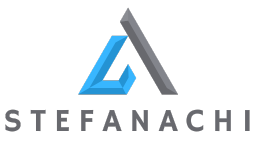Introduction to Azure Databricks
What is Databricks?

Databricks is a cloud-based data processing platform that is designed to help organizations manage and analyze large amounts of data. The platform is built on Apache Spark[1], an open-source distributed computing system that can process large amounts of data quickly and efficiently. Databricks provides a unified platform for data engineering, machine learning, and analytics[2], making it easier for organizations to work with their data.
Technologies Utilized by Databricks
Databricks is built on top of several technologies, including:
- Apache Spark[1]: A fast and versatile distributed computing system that can process large amounts of data in parallel.
- Delta Lake[3]: A storage layer that provides ACID transactions and versioning for data lakes.
- MLflow[4]: An open-source platform for managing the machine learning lifecycle.
Benefits of Using Databricks
There are several benefits to using Databricks, including:
- Scalability: Databricks can scale to handle large amounts of data, making it a good fit for organizations that need to process large volumes of data.
- Unified platform: Databricks provides a unified platform for data engineering, machine learning, and analytics, making it easier for organizations to work with their data.
- Collaboration: Databricks provides tools for collaboration, making it easier for teams to work together on data projects.
- Cost-effective: Databricks is a cloud-based platform, which means that organizations can avoid the upfront costs associated with building and maintaining their own data processing infrastructure.
Use Cases for Databricks
Databricks can be used for a variety of use cases, including:
- Data engineering: Databricks can be used to process and transform large amounts of data, making it easier for organizations to prepare their data for analysis.
- Machine learning: Databricks provides tools for building and deploying machine learning models, making it easier for organizations to leverage their data to make predictions and improve decision-making.
- Analytics: Databricks provides tools for data visualization and exploration, making it easier for organizations to gain insights from their data.
Industry-Specific Use Cases
Here are some examples of industry-specific use cases for Databricks:
- Healthcare: Databricks can be used to analyze large amounts of patient data to improve diagnosis and treatment[7].
- Finance: Databricks can be used to analyze financial data to detect fraud and improve risk management[8].
- Retail: Databricks can be used to analyze customer data to improve marketing and sales strategies[9].
- Energy: Databricks can be used to analyze sensor data from energy systems to improve efficiency and reduce costs[10].
Overall, Databricks is a powerful platform for managing and analyzing large amounts of data. It provides a unified platform for data engineering, machine learning, and analytics[2], making it easier for organizations to work with their data and gain insights that can improve decision-making and drive business success.
Sources:
- Apache Spark. https://spark.apache.org/
- Databricks. https://databricks.com/product/unified-data-analytics-platform
- Delta Lake. https://delta.io/
- MLflow. https://mlflow.org/
- Databricks Healthcare Use Cases. https://databricks.com/use-cases/healthcare
- Databricks Finance Use Cases. https://www.databricks.com/solutions/industries/financial-services
- Databricks Retail Use Cases. https://www.databricks.com/solutions/industries/retail-industry-solutions
- Databricks Energy Use Cases. https://www.databricks.com/solutions/industries/oil-and-gas


